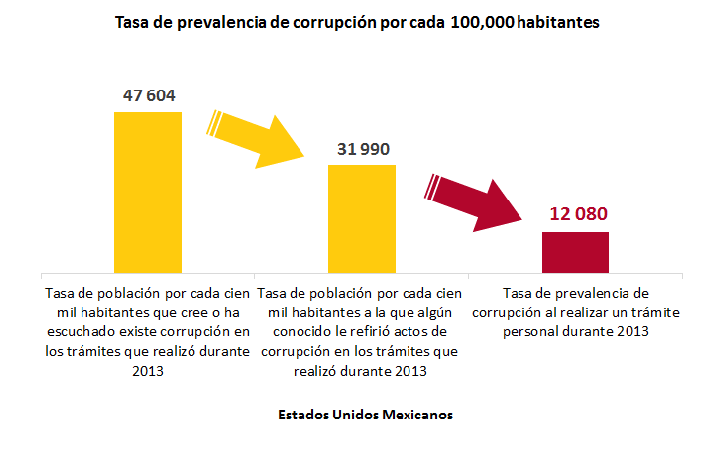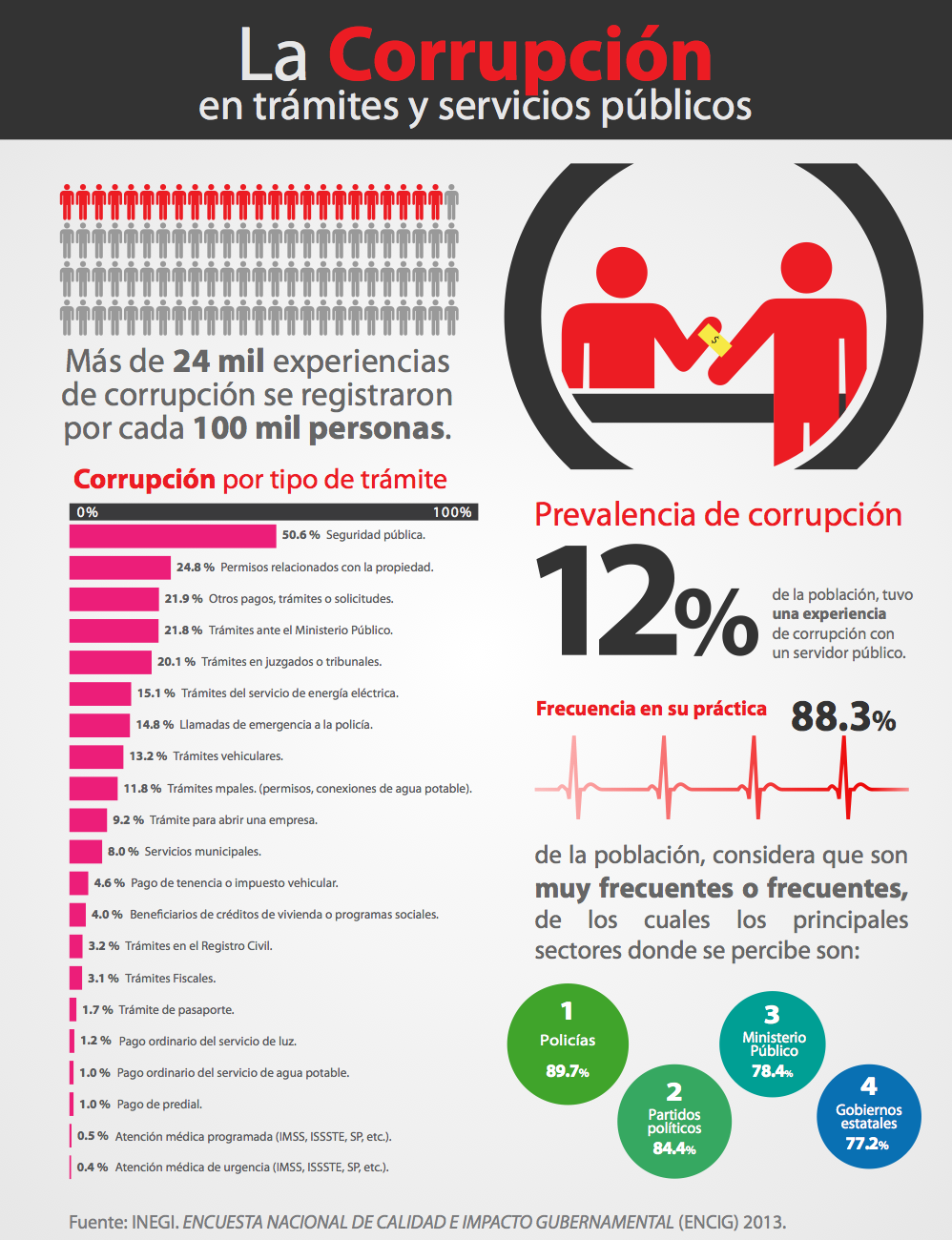Español On June 16, the Mexican National Institute of Statistics and Geography (INEGI) presented the National Survey for Governmental Quality and Impact (ENCIG), with less than uplifting findings. Their analysis reveals that 12 out of every 100 Mexican citizens or residents are victims of direct corruption when carrying out government paperwork.
“We no longer hear stories about corruption that happened in the distant past or stories from an acquaintance that told someone that a friend of a friend was a victim of corruption. Basically, now when someone does a bureaucratic procedure or asks for some form of service, 12.1 percent of those surveyed tell us that they have been victims of an act of corruption,” shared INEGI President Eduardo Sojo Garza Aldape at the press conference with the results.

Adrian Franco, director of government and safety statistics, clarified that the study does not measure the Mexico’s overall rate of corruption, but the type of corruption that citizens face when they go to a government office to request paperwork or a public service.
“There is no corruption included here that could be present in public works; that’s a whole different matter,” he said. He also explained that the percentage of people who believe and have heard that there is corruption in the proceedings, requests for services, or services carried out during 2013 was 47 per 100 inhabitants.
On the incidence of corruption, Franco stated that of the 30.1 million paperwork submissions or service requests, 7.4 percent of them experienced corruption. When aggregated over multiple requests, this results in an incidence rate of 25 acts of corruption per 100 people who file with government agencies.
In terms of the specific experiences of corruption that occurred during paperwork or the use of public services, 50.6 percent of people were victims of public security authorities, 24.8 percent were victims when dealing with property permits, and 21.9 percent when making various payments.

According to the survey results, 88.3 percent of citizens believe that there is corruption in their own state. Mexico’s institution with the worst reputation is the police force, with 89.7 percent of respondents identifying them as corrupt. They are followed by political parties at 84.4 percent, the Public Prosecutor’s Office at 78.4 percent, state governments at 77.2 percent, legislators and senators at 77 percent, and the media at 62.3 percent.
Corruption comes in third place of all the problems that worry Mexicans the most, with 48.5 percent holding this view — even ahead of poverty at 39.3 percent. This is only behind crime and security at 70.4 percent and unemployment at 51 percent, respectively.

The ENCIG investigated perceptions of corruption as well as the incidents of corruption when public services where requested. The surveys were carried out from November 4 to December 13 of 2013 in which 33,000 households of adults living in urban zones of more than 100,000 inhabitants were asked a variety of questions concerning corruption.
Criticisms of the Survey
The ENCIG ranked corruption perceptions in various states of the Mexican Federation, and San Luis Potosí came in first at 95.3 percent. Legislators from the National Action Party (PAN), Francisco Rodríguez and Patricia Leal, criticized the survey indicators that place the state of Puebla, which they represent, as the third most corrupt. They believe that the results are distorted by the preference for high-population centers, and that the methodology used misleading questions.
“These are perceptions,” Rodríguez says. “It should also be taken into consideration that we have the fourth largest city in the country. The more flow of people there is, the more we are susceptible to these types of results. But we can make a more serious effort to improve this situation.”
Corruption, Insecurity Hinder Economic Growth
These results support the Mexican entrepreneurial class’s perception of corruption and insecurity in México as the biggest obstacles to economic development. That is according to results from the Pulso Expansión 500 investigation with the following question: “What is lacking from this government in order to make the economy take off?”
Businessmen believe that the battle against corruption has to be the government’s priority. This includes pushing for greater transparency and better management of public spending. With regards to insecurity, some Mexican businessmen surveyed believe that it is necessary to ramp up the battle against kidnappings, the offensive against drug trafficking, and the identification of government officials linked to those crimes, especially at the local level.

 Versión Español
Versión Español












